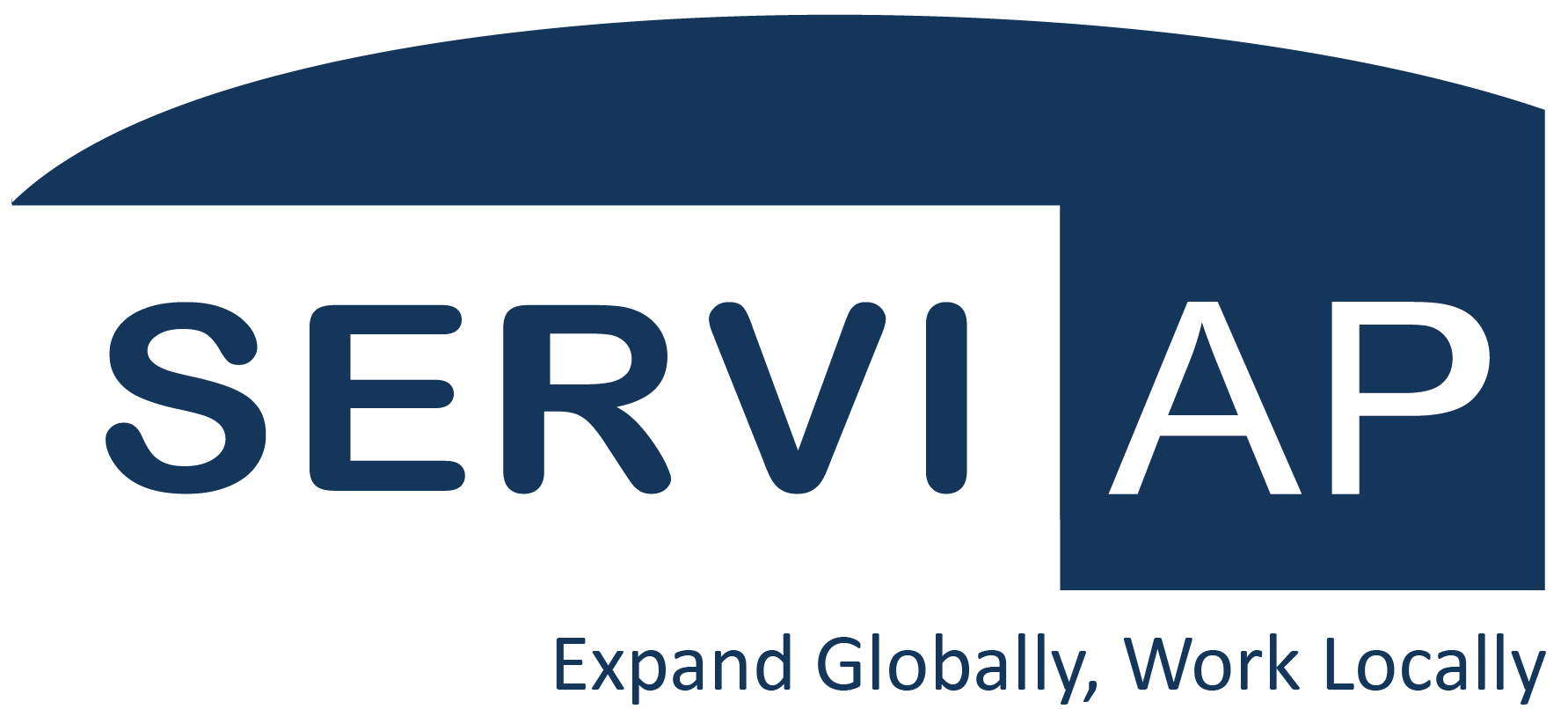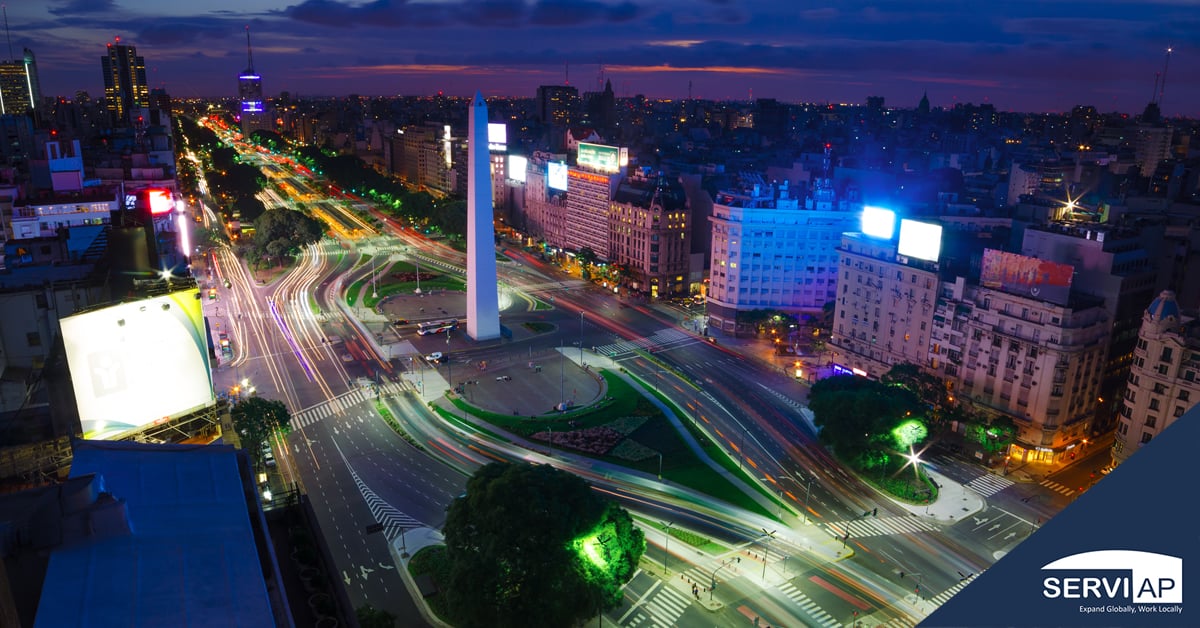- How to start a business and business license in Argentina
- Dealing with construction permits
- Getting electricity
- Registering property and
- Getting credit
- Protecting minority investors
- Paying taxes
- Trading across borders
- Enforcing contracts
- Insolvency
- Hiring workers in Argentina
About Argentina Work and Business
Argentina is the second-largest country in Latin America & the Caribbean and the 148th freest economy in the world. It has a variety of strong and great business to invest such as exportation of products like soy, meat, wine, car production, petroleum and gas. It is also member of MERCOSUR, a trade agreement between Brazil, Argentina, Paraguay, Uruguay and Venezuela. This allows access to those countries with reduced legal and tax requirements. Argentina enjoys top-class health and education, along with a diverse European culture.
Being a national citizen or a foreign opening a business in Argentina requires knowledge of the procedures and legal implications in Argentina to do so. Also is highly important to know how much time and money you will invest during the process.
1. Starting a business in Argentina
 |
The procedure to register your business in Argentina is quite simple; 12 steps completed within 11.5 days, on average |
 |
The cost of starting a business in Argentina: Registration fee is 5% of the estimated income of the business during its first year of operation. The fee is not paid in subsequent years. |
 |
There is no need for the new legal entity in Argentina to prove that it has a bank account in the same country. |
How to register a business in Argentina?
| At: General Inspection of Justice (Inspección General de Justicia - IGJ) Establishment of the company name as a trademark in Argentina. |
| At: Notary Office Articles of incorporation are signed by founders. |
| At: Official Gazette Publish a notice of incorporation |
| At: Bank and Public Registry of Commerce Pay the incorporation fee |
| At: Public Registry of Commerce of the City of Buenos Aires Register the business in Argentina |
| At: National Tax Authority (Administración Federal de Ingresos Públicos - AFIP Obtain a fiscal and municipal code for the company's legal representatives |
| At: National Tax Authority (Administración Federal de Ingresos Públicos - AFIP) Register for VAT |
| At: : Municipal Tax Authority for the City of Buenos Aires (Administración General de Ingresos Públicos - AGIP) Register for turnover tax and enroll the Employer Registry at online platform of TAD. |
| At : Labor Risk Company (Aseguradora de Riesgos de Trabajo - ART) Register for hiring employees in Argentina |
| At: National Tax Authority (Administracion Federal de Ingresos Publicos -AFIP) Register for labor registrations (Alta y Baja de Relaciones Laborales) |
| At:Authorized registration agencies Obtain digital signature for the legal representative |
| At:Directorate of Labor of the City of Buenos Aires (Dirección General de Empleo) Legislation of the employee books. |
2. Construction permits in Argentina
 |
Once interest gathers all information needed, the procedure to legally build a commercial facility (warehouse, offices, etc.) is 17 steps. Average completion time is 318 days. |
 |
Money invested during the process is equivalent to 3.1% of the commercial real estate value. This is an low-cost process compared to other countries. |
 |
Construction standards in Argentina are higher than average. According to the Building Quality Control Index, or BQC, Argentina enjoys a rating of 11 out of 15. |
Procedure
| At: Private licensed company Obtain a topographic map |
| At: General Directorate of Registration of Works and Cadastre (Dirección General de Registro de Obras y Catastro- DGROC) Request and get a certificate of line and dimensions |
| At: General Directorate of Registration of Works and Cadastre (Dirección General de Registro de Obras y Catastro- DGROC) Request and get land title |
| At: General Directorate of Registration of Works and Cadastre (Dirección General de Registro de Obras y Catastro- DGROC) Hold a cadastral consultation |
| At: College of Professional Architect Request and get a certificate of project drawings |
| At: General Directorate of Registration of Works and Cadastre (Dirección General de Registro de Obras y Catastro- DGROC) Get construction work use form |
| At: General Directorate of Registration of Works and Cadastre (Dirección General de Registro de Obras y Catastro- DGROC) Request and get delineation and construction rights |
| At: General Directorate of Registration of Works and Cadastre (Dirección General de Registro de Obras y Catastro- DGROC) Get a new construction permit |
| At: Environmental Protection Agency (Agencia de Protección Ambiental) Request and get a certificate of environmental impact assessment |
| At: Governmental Inspection Agency (Agencia Gubernamental de Control) Notify completion of the construction work structure and receive inspection |
| At: Aguas y Saneamientos Argentinos S.A Request and connect to water services |
| At: Notary Public Notarize for final authorization |
| At: General Building Authorization and Permit Department (Dirección General de Habilitaciones y Permisos – DGHP) Request and obtain final authorization |
| At: Dirección de Rentas |
Register the building
For detailed procedure visit: https://www.rosario.gob.ar/web/tramites/permiso-de-edificacion
3. Getting electricity in Argentina
|
The process to get electricity connection is 6 steps and 92 days of time spent. In comparison to other countries is a time-consuming method. |
|
.png?width=79&name=efectivo%20(1).png) |
Money invest through procedure is 15.5% of income per capita. In a monthly bill for commercial warehouse the tariff is $0,11 USD cents per kilowatt-hour. Which means the procedure is average cost but the tariff is expensive in comparison to other countries. |
 |
The reliability between duration and frequency of power in relation to the tariff is measure from 0 to 8, being 8 the best one. In Argentina electricity reliability is at the average with 5 points. |
4. Registering Property in Argentina
|
|
In comparison to other countries Argentina has a low-step but time-consuming procedure for property registration. They are 7 steps that can be done in 51.5 days. |
 |
The invest needed in this procedure is 6.6% of the property value. Value added tax and capital gain tax are excluded. Argentina is above the average cost for this operation. |
 |
Quality of land administration in Argentina is 13 out of 30. It indicates not-so-good reliability of infrastructure, transparency of information, geographic coverage, land dispute resolution and equal access to property rights. |
5. Getting Credit in Argentina
 |
Rights that manage lender-borrowers confidence and protection of secured creditors laws are not-so-good in Argentina. This laws are in favor of borrowers. |
 |
Rules affecting the reach of accessible information and its quality are measured through the Depth Credit Information index, from 0 to 8; 8 being the best one. |
6. Protecting Minority Investors in Argentina
In overall, minority investors are protected in Argentina above the average rate compared to other countries.
7. Paying Taxes in Argentina
 |
The new company in Argentina must pay 9 contributions per year. |
 |
Time invested in collecting information, computing tax payable, separating tax accounting books, completing tax return, filling with agencies, arranging payment or withholding throughout the year is 312 hours. This is a lot of spent time compared to other regions in the world. |
 |
Average time elapsed to comply VAT refund, to obtain VAT refund, to comply with corrections and to complete them is low compared to other countries. Post filing in Argentina is fast. |
8. Trading across Borders in Argentina
 |
Time and cost to obtain, prepare and submit documents compliance to export in Argentina is 25 hours and $ 60 USD. These is on line with the OECD average. |
 |
Time and cost to obtain, prepare and submit documents to import in Argentina is 166 hours and $120 USD. This process is more expensive and time-consuming than in other countries. |
 |
Time and cost to customs clearance and inspection for export products is 21 hours and $150 USD. This is above average in compare to other countries. |
 |
Time and cost to customs clearance and inspection for import products is 60 hours and $1200 USD. Argentina is in the average time with a really high cost compared to other countries. |
9. Enforcing Contracts in Argentina
Time and cost for resolving commercial disputes. This evaluates the legal dispute process and the quality of legal institutions.
| Typical time in Argentina to file a lawsuit, go to court and receive a judgment is 995 days. This is time-consuming in compared to other countries. | |
 |
The cost to enforce the contract to courts including attorney fees, court costs and enforcement cost is 22.5% of the claim value. This is a low cost compared to other nations. |
 |
Court structure, case management, court automation and alternative dispute resolution makes quality of judicial processes is really good in Argentina compared to other countries |
10. Bankruptcy in Argentina
Bankruptcy is the legal proceeding that involves businesses or persons that are unable to repay debts. It is the legal means to insulate itself from creditors.
 |
Time to recover debt in Argentina 2.4 years, this includes appeals and requests for extension. Compared to other countries in Latin America & the Caribbean this is an the average time |
 |
In Argentina, compared to other countries the cost required to recover debt is high. This is measured as a percentage of estate value including court fees, insolvency administrators, lawyers’ fees, assessors and other related fees. |
|
In many situations a company bankruptcy will continue operating until unable to do so or business assets are sold. In Argentina there is a tendency for companies to continue operating after filing for bankruptcy. |
|
 |
The credit recovery rate is calculated by dividing the total payment amount by the amount of debt. It measures the cents on the dollar recovered by secured creditors. Companies in Argentina have a recovery rate of 19.2 cents per dollar. |
11. Hiring workers in Argentina
For detailed information visit: What you need to know about employing personal in Argentina.
| Hiring Employees in Argentina | Companies can not defined a labor agreement if the nature of the work is undefined. The limit length for a single fixed-term contract, including renewals but the maximum probatory period is 3 months. The minimum wage is $15,625 Argentine pesos per month |
| Working Hours in Argentina |
A standard workday is 8 hours a day 5.5 days a week. Overtime is paid as +50% of hourly pay and there are no restrictions working at night or weekend. If the employee works on its weekly rest day, this must be paid as +100% of hourly pay. Vacations are awarded based on seniority
|
|
Termination in Argentina |
Once the employment contract has begun, neither party can dissolve it without prior notice. If the contract has been valid for a year or more and the employer terminates without a just cause, the worker must be paid a compensation for the years of service. |
References:
https://www.doingbusiness.org/content/dam/doingBusiness/country/a/argentina/ARG.pdf




